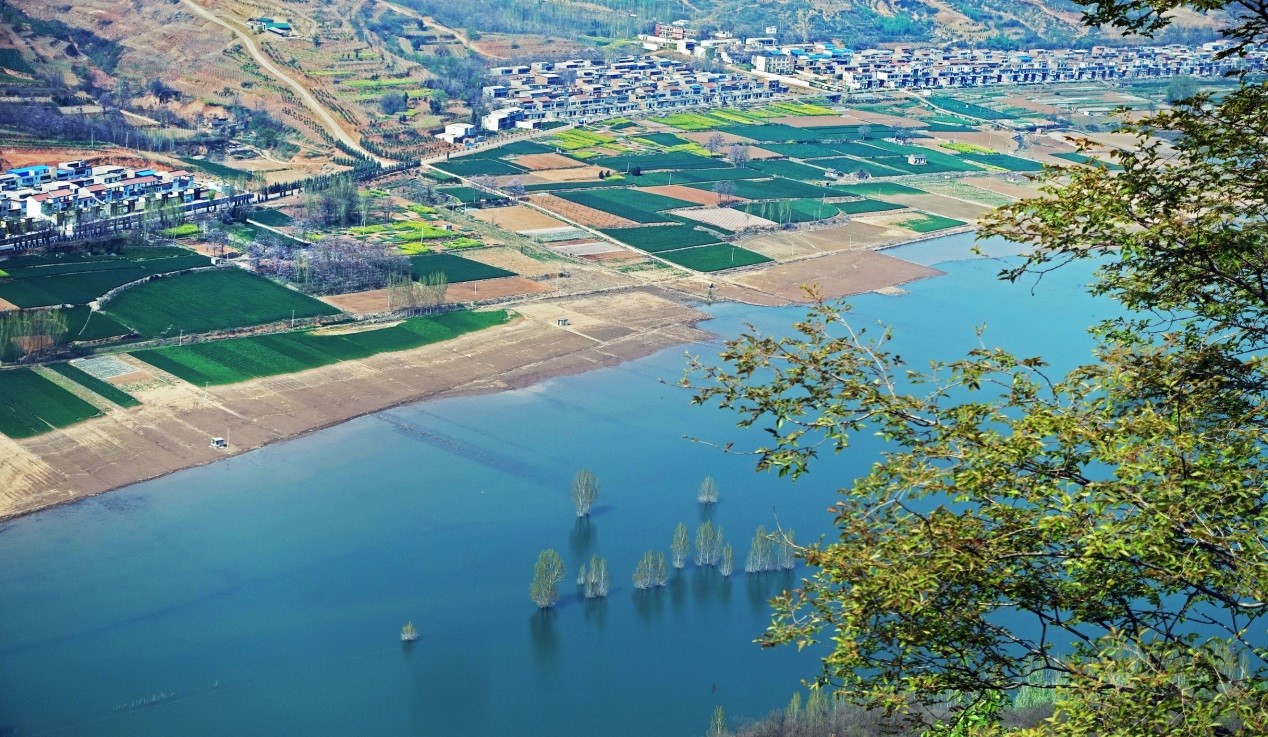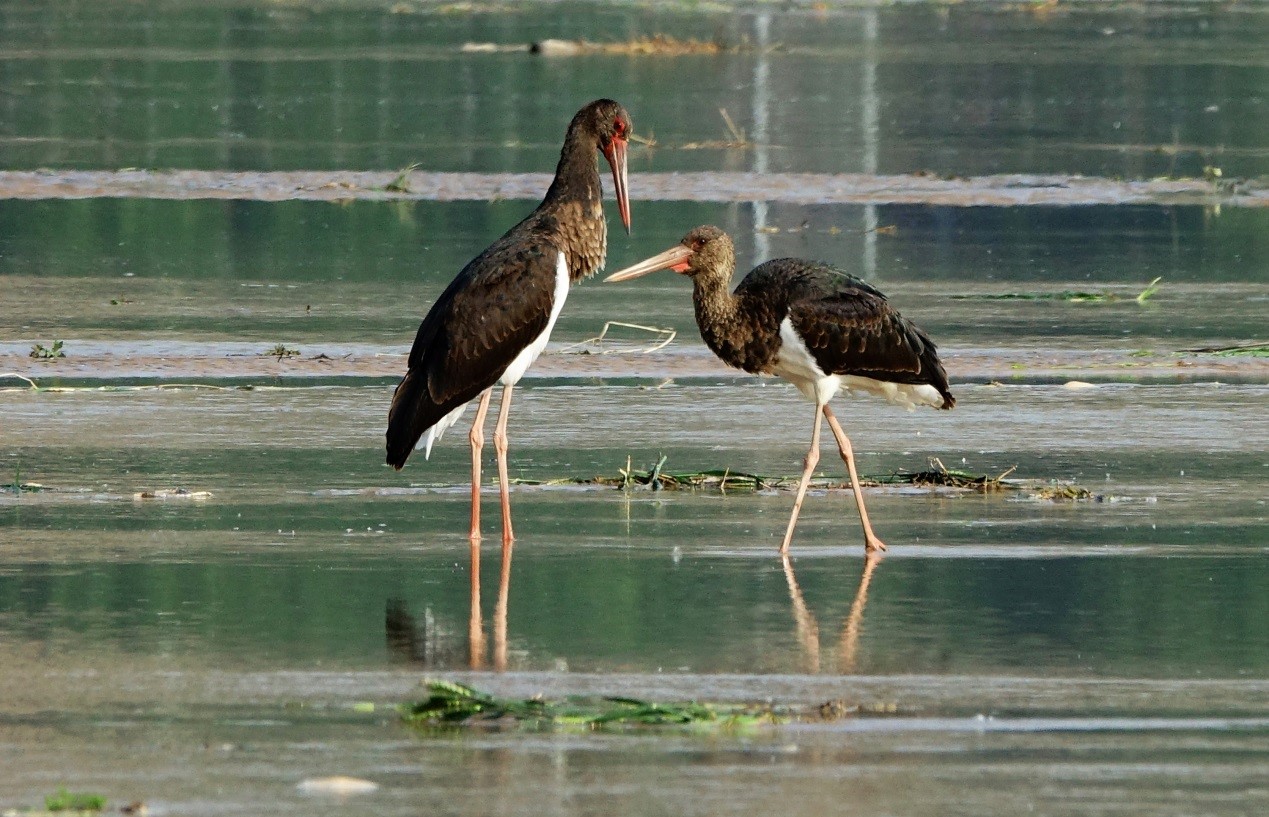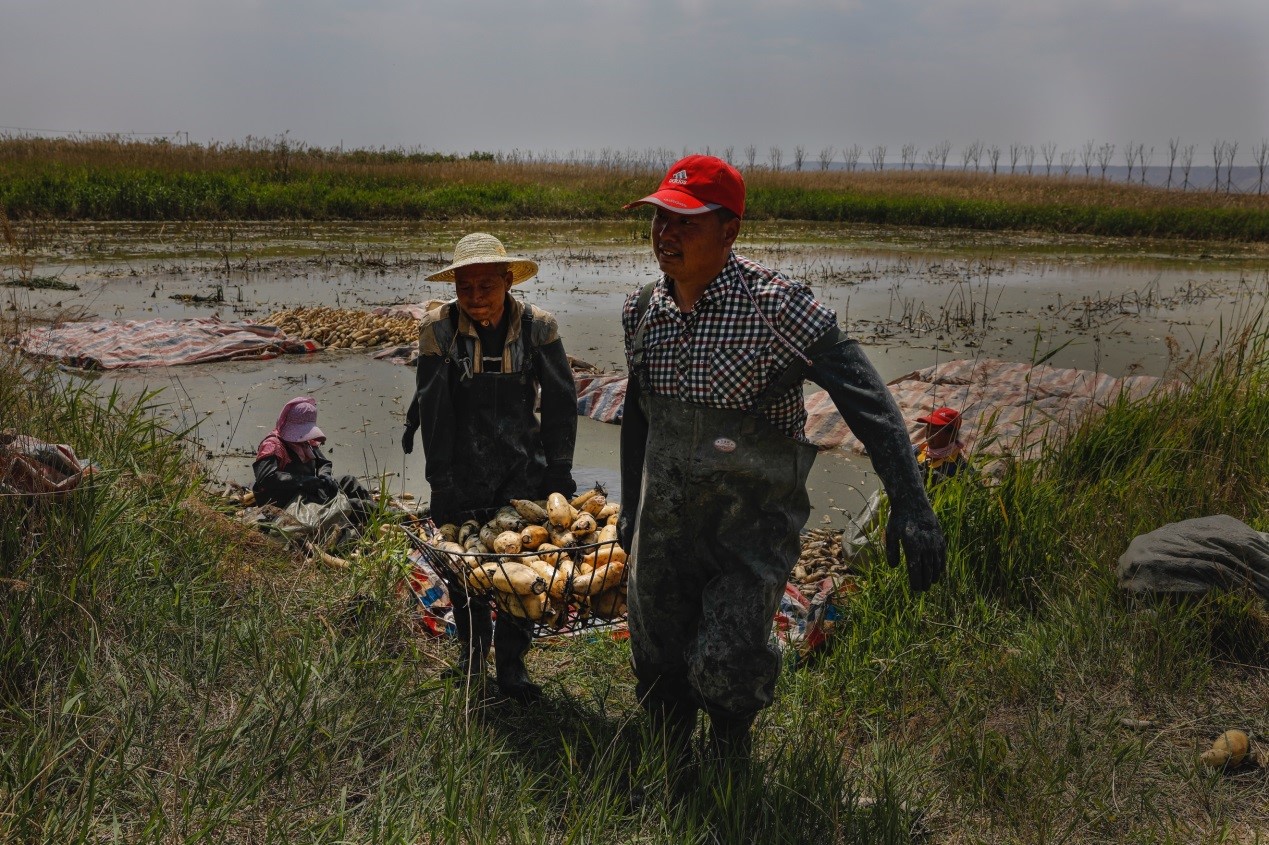

It’s the 13th year for Song Fengqiang, a member of the 11th, 12th, and 13th National Committee of the Chinese People’s Political Consultative Conference (CPPCC), to focus on the Yellow River, the mother river of China.

Photo taken on April 6 shows the beautiful scenery of the ecological corridor along the Yellow River of Xin’an county, Luoyang, Henan province. Photo by Huang Zhengwei/People’s Daily Online
This time, Song, president of an agricultural enterprise in central China’s Henan province, planned to raise three proposals to the annual session, one of which is about incorporating the development of ecological tourism into the overall plan for the high-quality development of the Yellow River.
As the ecological protection and high-quality development of the Yellow River basin turned into a national strategy of China last year, how to strike a balance between development and ecological protection became a major concern of Song. To find the answers, he made multiple field trips to the villages along the Yellow River.
He said in his proposal that the development plans of the Yellow River basin shall be jointly made by central ministries and departments to maximize economic and ecological benefits.

Photo taken on April 27 shows the beautiful lake and lush trees of the Yellow River Wetland National Nature Reserve in spring in Sanmenxia, Henan province. Photo by Sun Meng/ People’s Daily Online
“Lucid waters and lush mountains are invaluable assets.” This concept strikes a chord with the man very much.
“When I was young, the riverside was a vast expanse of saline-alkali land. In winter, people would collect the alkali in the frozen soil and sell it for money,” Song said, adding that without effective control and development, the ecology would only deteriorate.
In recent years, he has conducted many surveys in river-belt and coastal regions in China. He found that many places had well protected ecological system while developing tourism and entertainment industries, which greatly benefited local residents and vitalized local economy.
His friends once told him that it was not wise to invest in ecological agriculture, but he remained resolute. He devoted over 20 years into the Yellow River, with a strong sense of responsibility and a firm goal: to improve ecological environment of the riverside and make waters and mountains lucid and lush.
Thanks to the man’s unremitting efforts, hundreds of hectares of sand along the Yellow River are now covered by vegetation, and four tourist attractions of 4A category, the second-highest level in the Chinese rating system, are established.

Two black storks rest in a wetland of the Yellow River in Wenxian county, Jiaozuo, Henan province on April 27. Photo by Wang Jin/People’s Daily Online
On top of that, Song has also built a cherry blossom park with an area of over 333.33 hectares in Xingyang, where some 80 kinds of sakuras are cultivated. Driving relevant industries of cherry blossoms, the park is also boosting local economy and increasing the income for local people.
As the novel coronavirus has taken a heavy toll on tourism, Song said he prepared another proposal for the National Committee of the CPPCC suggesting that the government introduce supportive policies to boost the industry.
“I feel obliged to do so, and I hope to help more in the tourism industry,” he said.

Farmers harvest lotus roots in a wetland of the Yellow River in Wanrong county, Yuncheng, Shanxi province in north China on April 26. Photo by Pan Qingjuan/People’s Daily Online
Mangshan Mountain, lying to the northwest of Zhengzhou, capital of Henan province, was once barren. To green the mountain, Song has invested over 100 million yuan ($14 million) in the past decade planting trees on it. His practice is hailed by many, but some said he was silly as he could have earned hundreds of millions yuan if he sold the trees.
No matter what other people say, Song always sticks to his own belief. “I’m not only a farmer-turned-entrepreneur, but also a member of the CPPCC. It’s my responsibility to do so,” he noted.

 Award-winning photos show poverty reduction achievements in NE China's Jilin province
Award-winning photos show poverty reduction achievements in NE China's Jilin province People dance to greet advent of New Year in Ameiqituo Town, Guizhou
People dance to greet advent of New Year in Ameiqituo Town, Guizhou Fire brigade in Shanghai holds group wedding
Fire brigade in Shanghai holds group wedding Tourists enjoy ice sculptures in Datan Town, north China
Tourists enjoy ice sculptures in Datan Town, north China Sunset scenery of Dayan Pagoda in Xi'an
Sunset scenery of Dayan Pagoda in Xi'an Tourists have fun at scenic spot in Nanlong Town, NW China
Tourists have fun at scenic spot in Nanlong Town, NW China Harbin attracts tourists by making best use of ice in winter
Harbin attracts tourists by making best use of ice in winter In pics: FIS Alpine Ski Women's World Cup Slalom
In pics: FIS Alpine Ski Women's World Cup Slalom Black-necked cranes rest at reservoir in Lhunzhub County, Lhasa
Black-necked cranes rest at reservoir in Lhunzhub County, Lhasa China's FAST telescope will be available to foreign scientists in April
China's FAST telescope will be available to foreign scientists in April